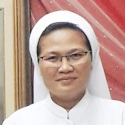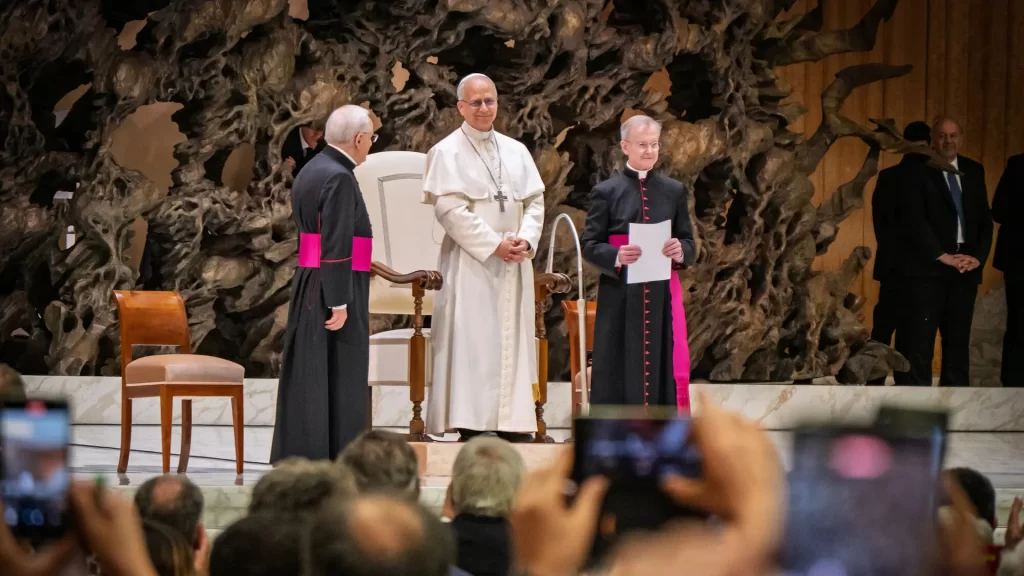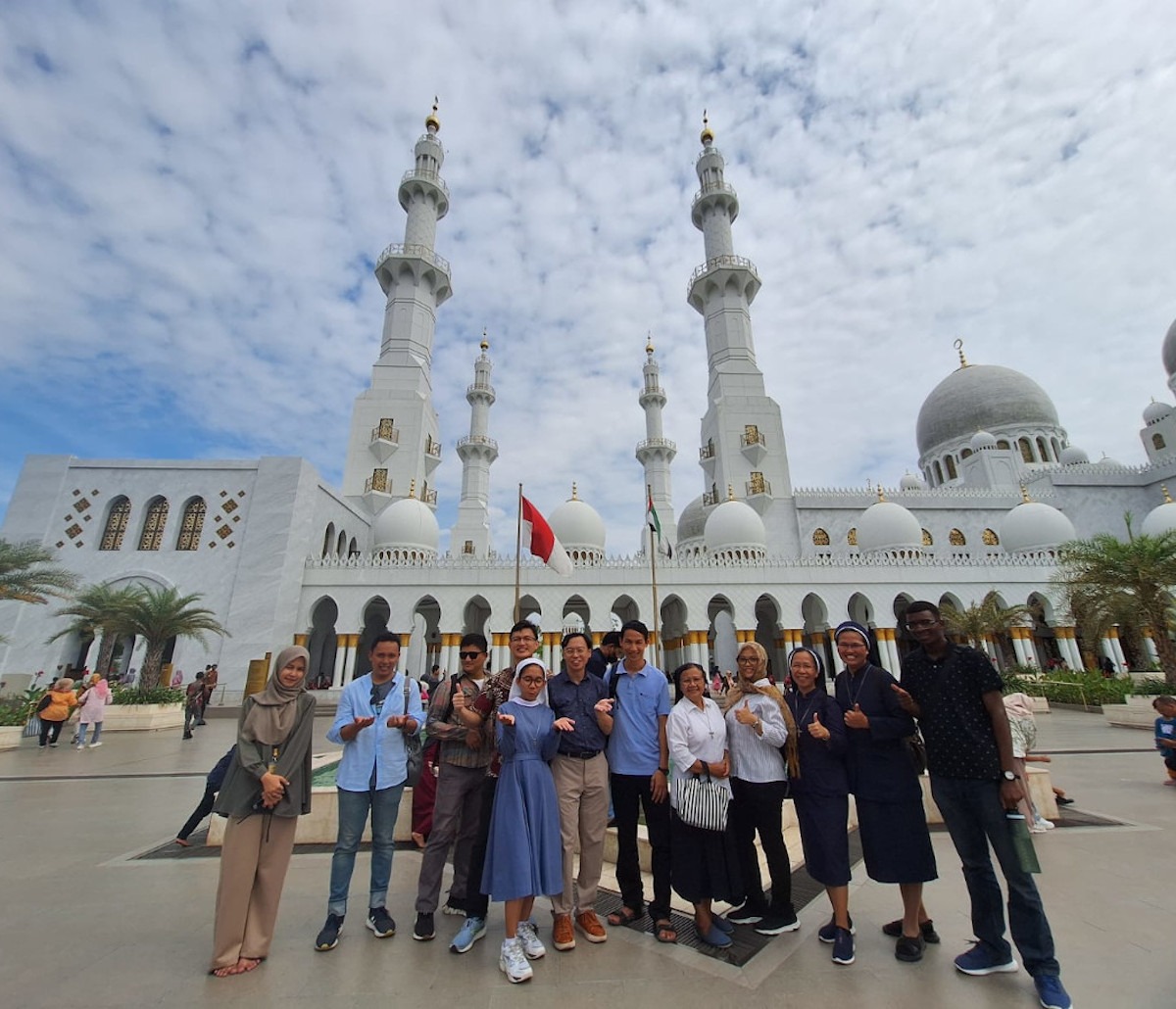
To ensure a respectful visit, I consulted my Muslim friend, Wulan, who provided the mosque’s visiting schedule and guidelines, along with a contact number, where we could send an official request for a tour. We were delighted by the positive response.
Upon entering the mosque grounds, we received an extraordinary welcome from the staff members. They led us to the front room for an orientation and then to the library located in the mosque tower. The library contains literature on moderate Islamic books and a general collection. Various activities are also held there to guide young people away from radicalism and promote interfaith tolerance.
One of the remarkable sights inside the mosque is a giant Quran measuring 3 metres by 2 metres. This Quran is named Ir H Joko Widodo because its first letter was handwritten by President Jokowi. While visitors view this giant Quran from a distance of about 1.5 metres behind a rope barrier, we were granted special access to see it up close and learn about its creation process.
After a group photo near the Quran, we received an unexpected honour. The mosque’s director, Mr Munajat, welcomed us personally and invited us to his VIP room. We were treated to a delightful spread of fruits, snacks, tea, and coffee, while Mr Munajat gave a comprehensive overview of the mosque’s history, vision, mission, and the various programmes it offers. We also watched videos showcasing the mosque’s active role in engaging with both the Muslim community and the surrounding area.
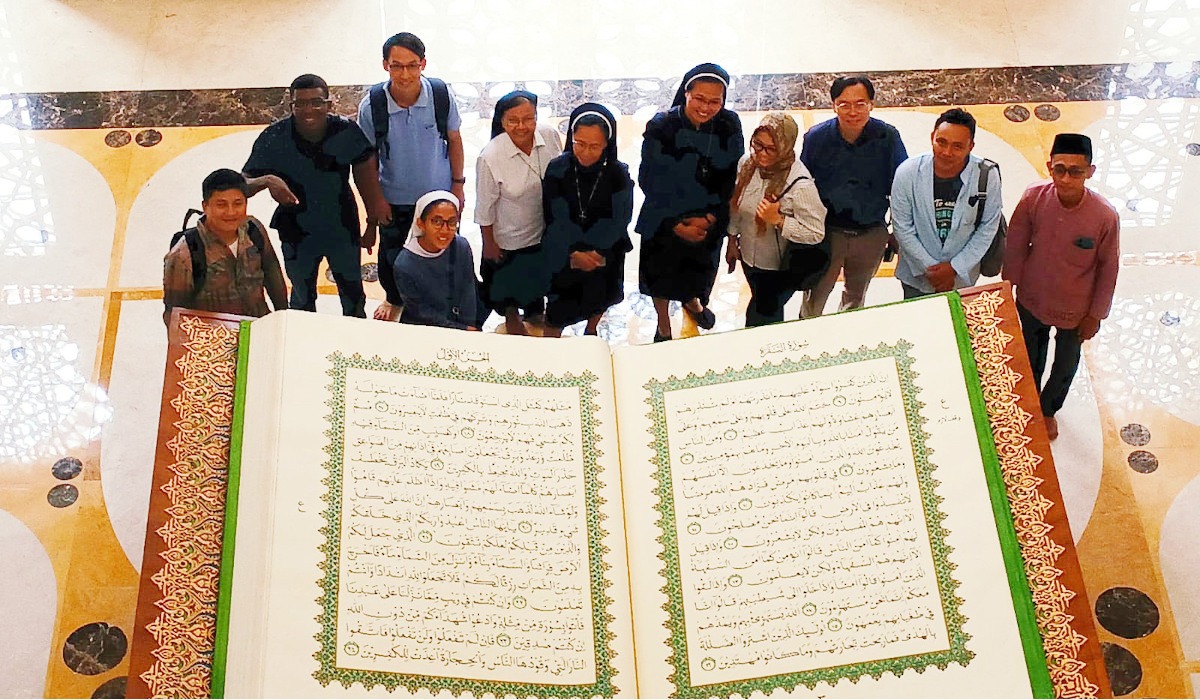
This vision translates into a multi-faceted mission, including promoting Sheikh Zayed’s legacy in applying human values; serving as a centre for the religious moderation movement and fostering a tolerant culture; promoting the coexistence of Islamic Indonesian and United Arab Emirates cultures; strengthening relations between Indonesia and the United Arab Emirates; becoming an inspiring and educational religious tourism destination; and providing a welcoming environment for children, the elderly, and those with disabilities.
The conversation took a fascinating turn when we discussed the complex issue of terrorism. Mr Munajat shed light on how extremist ideologies developed and how Solo has, in the past, been vulnerable to the spread of extremism. The mosque, however, signifies inclusivity. It is open to visitors of all faiths and hosts various activities that promote cultural understanding. The daily schedule (3:30–10:00 pm WIB) allows everyone to use the space for prayer and reflection.
Despite its popularity as a religious tourism destination, attracting up to 30,000 visitors daily during school holidays, the mosque’s openness makes it an attractive target for terrorists. Mr Munajat assured us that the management is highly vigilant in registering guests and has a zero-tolerance policy for extremist rhetoric from the pulpit to safeguard the message of tolerance. Recognising the risk of radicalization, they also employ various humanitarian approaches to counter extremist ideology and promote awareness within the community.
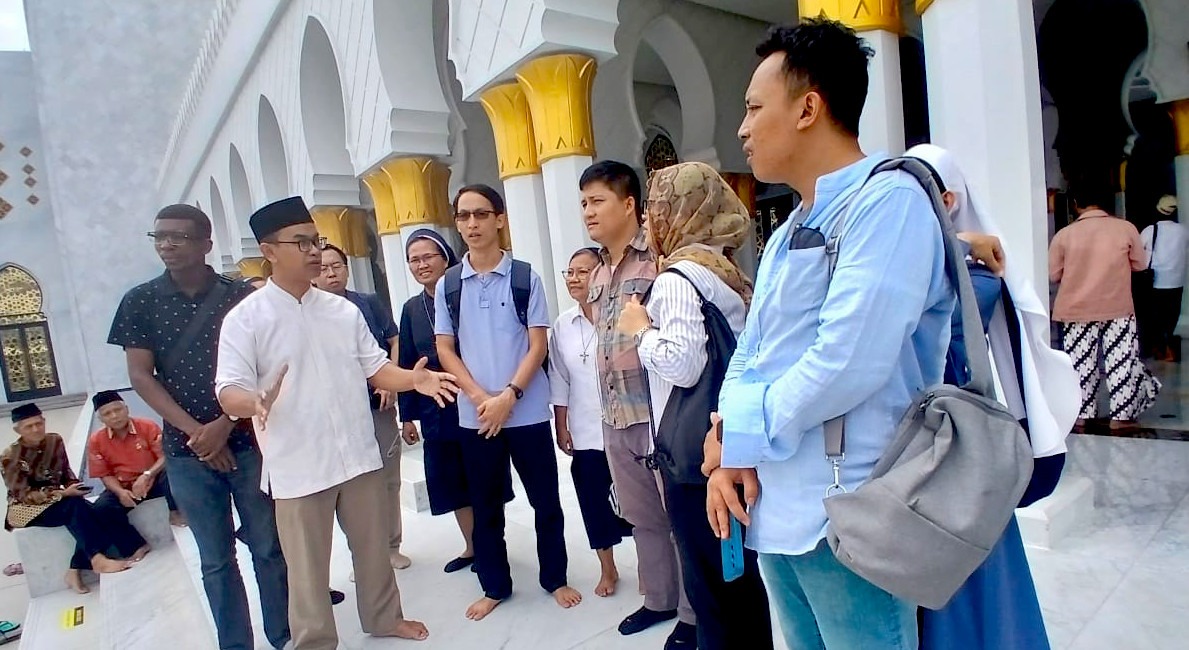
Mr Munajat then granted us the rare privilege of entering the main prayer hall to see the beautiful interior of the mosque. We couldn’t help but notice the curious gaze of the many visitors, who were intrigued by the presence of Catholic religious and laypeople from abroad amidst their congregation. After the tour, Mr Munajat and his staff graciously escorted us to the mosque courtyard, where they sought our impressions for the mosque’s records. We expressed our hope that our visit would inspire interfaith dialogue and learning.
This encounter was a memorable way to culminate our APTEP experience. It was truly a blessing for all of us participants. May APTEP continue to flourish and be a beacon of understanding for all religious communities.
Related stories:
Visiting Girisonta
A journey of interfaith dialogue and discovery in Indonesia
Immersing in Islamic communities in Central Java

